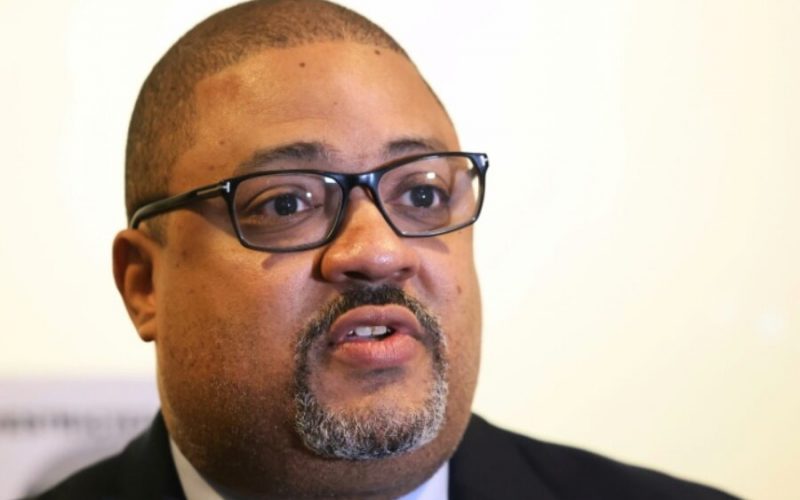The Manhattan District Attorney Alvin Bragg’s office is requesting a gag order to restrict former President Donald Trump from making “certain extrajudicial statements” as a case accusing the 45th president of falsifying business documents moves toward trial.
Last week, the district attorney submitted a notice for an upcoming motion seeking a gag order, arguing that President Trump “has a long history of making public and inflammatory remarks about the participants in various judicial proceedings against him.”
The argument mirrors strategies employed in other jurisdictions to effectively silence President Trump during legal proceedings. Both a New York civil court and a federal judge in Washington imposed gag orders on the former president, citing concerns that named parties could face undue harassment. Appeals courts in both instances partially upheld the gag orders for similar reasons.
As such, the Manhattan district attorney is arguing that “legal authority for such an order is well-established.”
They contend that the former president’s remarks, along with the “inevitable reactions they incite from defendant’s followers and allies,” could disrupt the legal proceedings and are likely to result in “material prejudice.”
The court has already issued a protective order regarding the “use of materials obtained through discovery and by subpoena,” and prosecutors now want an additional order prohibiting President Trump from making or directing others to make statements about “reasonably foreseeable witnesses concerning their potential participation in the investigation or in this criminal proceeding.”
Following the language adopted by the D.C. Circuit Court of Appeals, prosecutors request that the gag order cover statements not only about Mr. Bragg but also about other attorneys, family members, and staff of the district attorney or other counsel, as well as court staff. This request applies if the statements are “made with the intent to materially interfere” with the case or influence others. Additionally, they seek for the gag order to include statements about jurors or potential jurors.
“As other courts have found, these reasonable prophylactic measures are amply warranted by the defendant’s past conduct and by the risk of prejudice to the pending proceeding if appropriate protective steps are not taken,” prosecutors wrote.
They argue that this is suitable as it is “narrowly tailored.” The order would not restrict President Trump from discussing the case or Mr. Bragg directly, but it would prohibit him from making statements about witnesses, including Michael Cohen, who previously represented President Trump and whose allegations prompted the case.
In a separate civil case, President Trump’s attorneys aimed to impeach Mr. Cohen as a witness by highlighting his multiple instances of perjury in court.
President Trump’s legal team stated that they will file their response in court later this week.
Share your thoughts by scrolling down to leave a comment.

